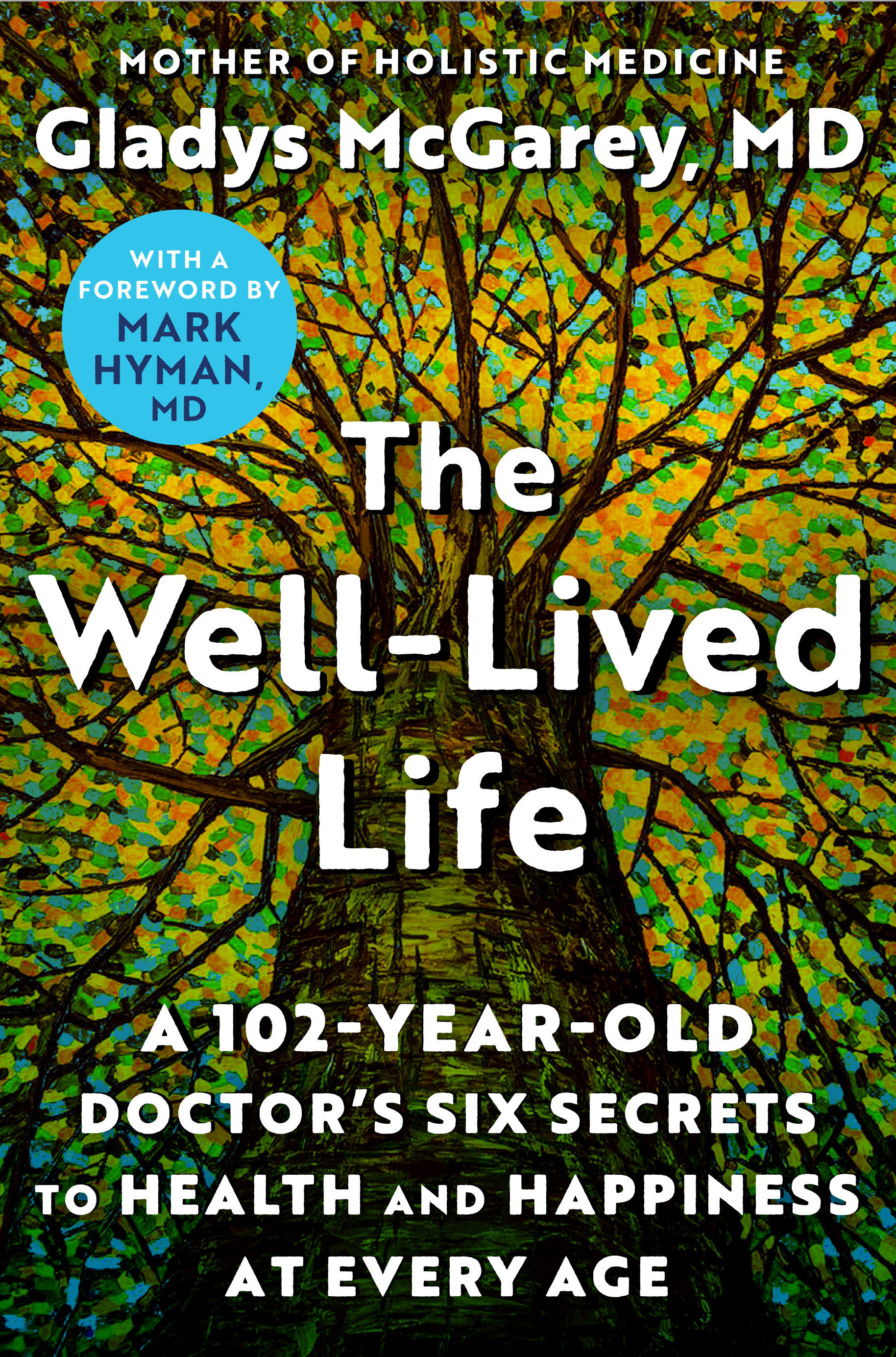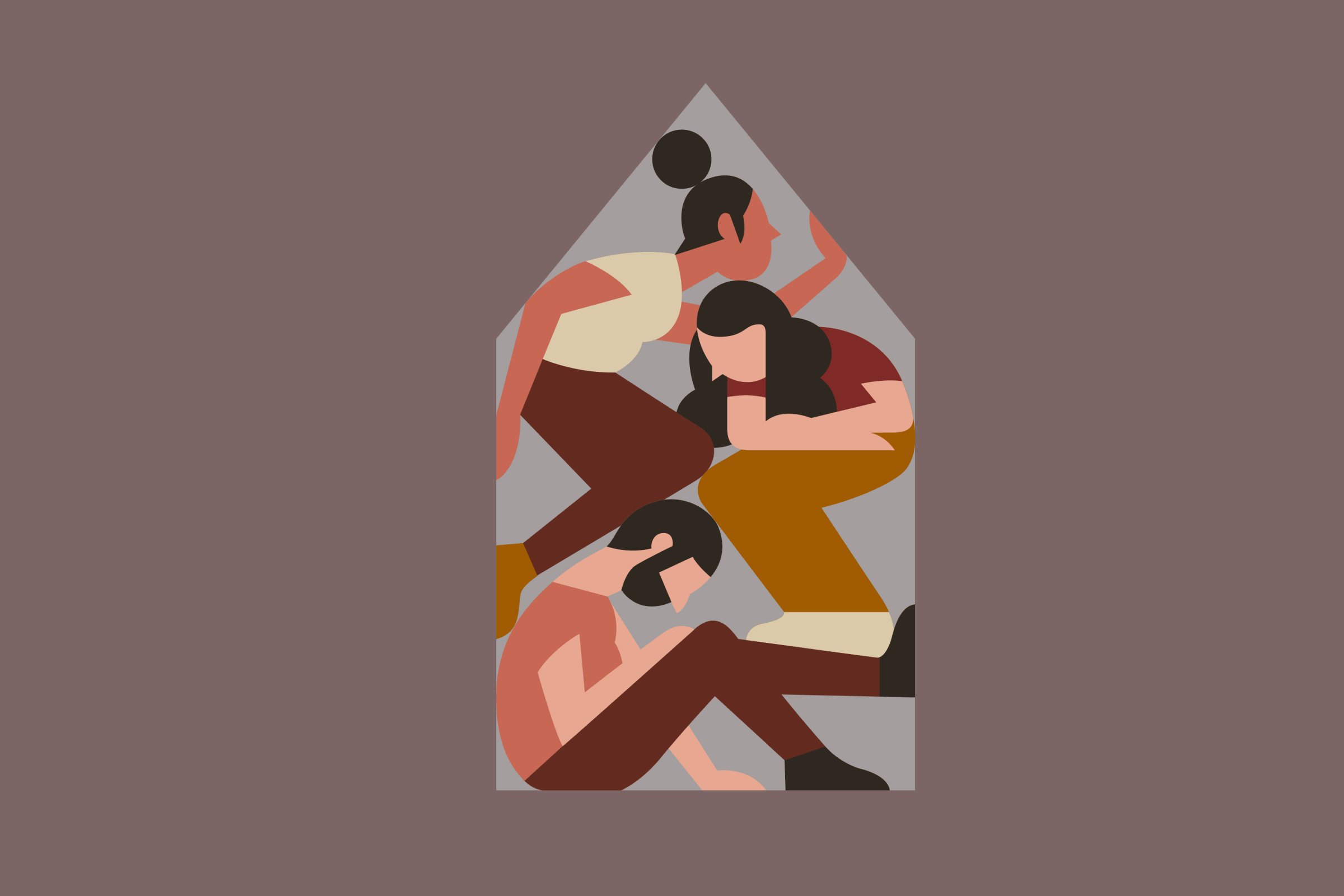Have you ever felt frozen, as if you can’t seem to move forward in life? Perhaps it’s as if you can’t seem to move on from a trauma or a heartbreak—or you can’t tap into the passion or enthusiasm that once came so easily. Maybe you’re so unmotivated at work that you spend time fantasizing about “getting away” somewhere you can’t quite name.
Whatever the cause, you have no idea what to do next—what change to make, what specialist to see.
Or maybe even how to get out of bed.
It’s natural for all of us in life, at some point, to feel stuck. Our juice is meant to flow—so what do we do when no matter how hard we try to get more juice, it just seems to stagnate within us?
More from TIME
To answer this question, it’s worth considering what “stuck” can look like on the physical level. As a medical doctor who has been practicing holistic medicine since the 1950s—long before the word “holistic” was in common use—I’ve seen plenty of patients whose stuckness developed in their soul long before it manifested in their bodies. I once treated a very smart and self-aware 80-year-old woman, Theresa, who had been suffering from severe intestinal obstructions for several months. Theresa had consulted other doctors and tried everything she knew to do physically, but the blockages had persisted. She came into my office distraught and clearly uncomfortable. “I don’t want to live the rest of my life this way,” she said.
We started by discussing her diet, which wasn’t amazing but wasn’t terrible, either. She had altered it significantly to address her constipation, but it hadn’t made much of a difference. We then talked about her water intake and how often she exercised. Since nothing seemed off, I then moved on to more holistic questions about her life in a general sense: her emotions, her social support, what brought her days joy and meaning. As she spoke, I noticed that she seemed increasingly closed off to my questions. She paused and looked at me after each question I asked, tightening her lips slightly as if trying to understand my angle before reluctantly offering an answer.
Read More: Grief Is Universal. That Doesn’t Make It Less Isolating
“And what about your dreams?” I asked. “Is your sleeping self trying to tell you anything?”
“My dreams? What would my dreams have to do with it?” Theresa asked, leaning back in her chair and crossing her arms, gripping her upper arms lightly in frustration. She gave me a look that made it clear that she didn’t appreciate my deviating from the topic at hand. The trouble was that from my perspective, those questions had everything to do with the topic at hand. Diet, exercise, and hydration are great places to start when it comes to issues affecting digestion. Water is important because it helps break down the food we eat, enabling the body to absorb nutrients. Then water helps what’s left to move out. Our diet is crucial because the more whole foods we eat, the more fiber we take in, which helps stimulate our bowels to move food and nutrients through and out of the body. Exercise is important because it increases blood flow to the muscles in and around our gut, helping them do their job. Do you see a pattern here? Our bodies work because they were built to move.
Our digestion is also symbolic of how we take in the world and how we let it move through us. Our thoughts and emotions can affect our digestion, too, as they create and release tension around the organs that affect their functioning. So though Theresa didn’t particularly want to talk about the rest of her life, I kept trying to get some details about what was going on for her.
Finally, she admitted that she had been feeling sad lately. When I asked why, she reluctantly explained that she had lost someone close to her…and someone else. And then someone else. Eventually, Theresa admitted that she had lost five close friends and family members in the past year. Her eyes flitted toward the ceiling as she said it, then back toward the floor. She looked anywhere but directly into my eyes.
“Have you grieved?” I asked.
She looked at me strangely. “Of course I’ve grieved. I’m sad.”
Something about her answer seemed too simplistic. She seemed to see grief as a reaction, not an experience—as something that happens, not something we do. Something about her response felt stuck, like her bowel. As we discussed her grief, she became increasingly nervous. I watched her body respond to her emotional state. The effect was undeniable: a tightness came over her, moving through her face, her posture, her fingers, her voice. Her arms were uncrossed by then, but her hands gripped each other in her lap.
That was when I knew that I’d found an opening. To understand how Theresa was digesting food, we first had to look at how she was digesting her experience of loss.

In Western medicine, we don’t tend to connect our physical issues to our mental or emotional states. We’re trained to look at iso- lated organs or focus on mechanical issues such as diet and posture, instead of asking patients, “What do you think you’re holding in your gut?” or “What else in your life isn’t working?”
Yet people often know where they’re stuck in life, and they can point right to it when questioned.
Theresa’s bowel was stuck. But there are many ways for our body to slow down or perhaps even stop completely. Consider an athlete going through a period of her life when she’s unable to move because of an injury. Sometimes women’s menstrual cycles become irregular or even stop completely during the years when they would otherwise be capable of reproduction.
We can also easily find ourselves stuck psychologically, often due to trauma. Our brain feels as though it’s in a loop sometimes because it actually is—we’ve found a well-trodden neural pathway and dug in deep.
We seem to have a deep unconscious knowing that life is supposed to move. This is what makes it so obvious when things are not moving—even if we don’t yet know what to do about it. All life needs to move.
Though our bodies perform autonomic movement processes, it’s important for us to move consciously, as well. A longitudinal study on physical activity and longevity found that even ten minutes of brisk walking daily is associated with a longer life expectancy. Any doctor will tell you that exercise is essential for moving through stress and depression because it signals the brain to release feel-good hormones and that it has profound benefits for physical health in both the long and short term. This is backed by research from around the world indicating that some of the longest life spans are found in cultures where people’s lifestyle forces them to walk every day. Exercise helps not only the body but also the mind. It has remarkable positive effects on mood, as well as cognition. It’s essential that we integrate movement into our lives.
There are many factors at play here, but to a large extent, much of what the science suggests is simply logical. Stillness promotes tension. And when we hold tension in our body, we restrict our circulation, digestion, and nervous system, making it harder for our body to get nourishment.
From THE WELL-LIVED LIFE by Gladys McGarey, MD. Copyright © 2023 by Gladys McGarey. Reprinted by permission of Atria Books, a Division of Simon & Schuster, Inc.
More Must-Reads from TIME
- How Donald Trump Won
- The Best Inventions of 2024
- Why Sleep Is the Key to Living Longer
- Robert Zemeckis Just Wants to Move You
- How to Break 8 Toxic Communication Habits
- Nicola Coughlan Bet on Herself—And Won
- Why Vinegar Is So Good for You
- Meet TIME's Newest Class of Next Generation Leaders
Contact us at letters@time.com
